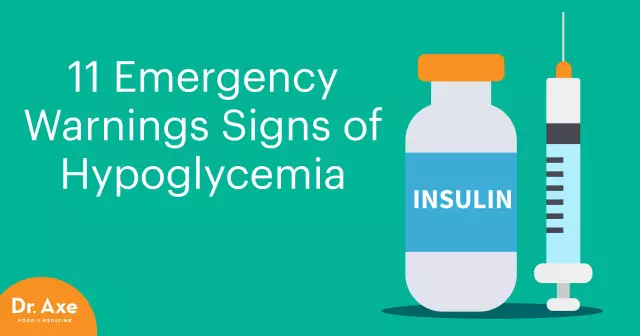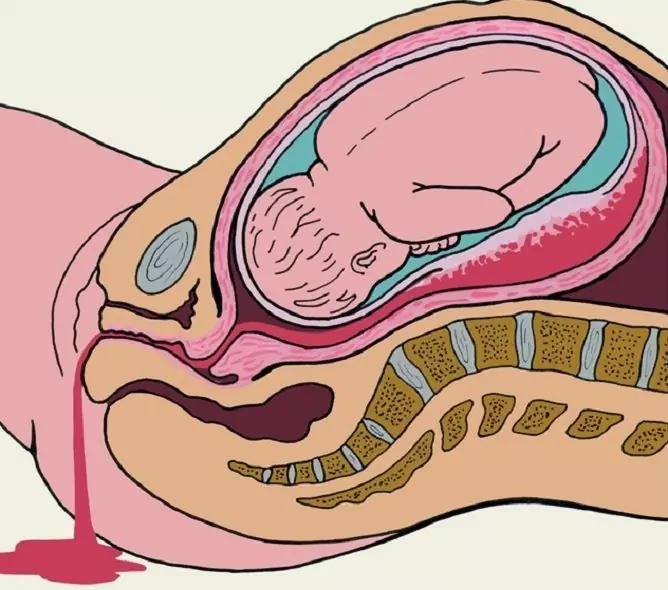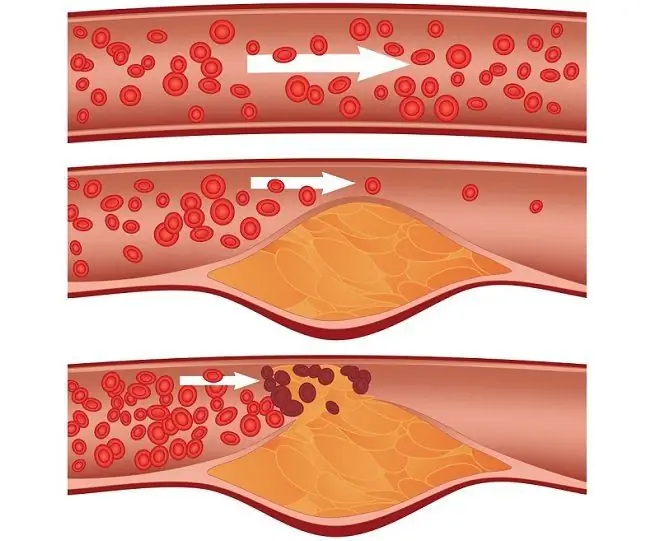- Author Rachel Wainwright wainwright@abchealthonline.com.
- Public 2023-12-15 07:39.
- Last modified 2025-11-02 20:14.
Hyperglycemia

Hyperglycemia is a clinical symptom of an elevated or excessive serum sugar (glucose) level. At a norm of 3.3-5.5 mmol / l, the blood sugar content of a patient with hyperglycemia exceeds 6-7 mmol / l.
With a significant increase in blood glucose levels (up to 16.5 mmol / L or more), the likelihood of a pre-coma or even coma is high.
Hyperglycemia: Symptoms
It is very important to determine the onset of a sharp increase in blood sugar levels in order to take timely measures to reduce or stabilize it, for this you need to know that the symptoms of hyperglycemia are as follows:
- Sudden intense feeling of thirst;
- Insatiable hunger, increased appetite;
- Frequent urge to urinate
- Deterioration of vision, the appearance of veils and flies before the eyes;
- Increased fatigue and constant fatigue;
- Exhausting headache, decreased concentration;
- Chills, sweating, dry skin, numbness of the lips;
- The smell of acetone from the mouth;
- Unmotivated irritability.
The presence of one or more of the above signs may indicate the approach of hyperglycemia. In very rare cases, hyperglycemia is asymptomatic.
Hyperglycemia: Causes
Hyperglycemia is temporary and long-term.
The causes of temporary hyperglycemia can be:
- Excessive intake of carbohydrates;
- Pain syndromes, accompanied by a significant increase in the release of thyroxine and adrenaline into the blood;
- Stress and outbursts of emotions;
- Excessive release of counterinsulin hormones (glucogen, adrenaline) into the blood;
- Hyperplasia of the adrenal cortex (steroid diabetes);
- Pregnancy;
- Vitamin C, B1 hypovitaminosis;
- Profuse blood loss;
- Carbon monoxide poisoning.
The cause of prolonged hyperglycemia, or the so-called persistent, is a violation of the neuro-endocrine regulation in carbohydrate metabolism.
Help with hyperglycemia

Diabetes mellitus, and, as a consequence, hyperglycemia, is spreading at an incredible speed throughout the world, it is even called the pandemic of the 21st century. That is why it is necessary to know how to properly and effectively help with hyperglycemia. So, in case of an attack:
- To neutralize increased acidity in the stomach, you need to eat a lot of fruits and vegetables, drink large quantities of alkaline mineral water with sodium, calcium, but categorically not give chlorine-containing mineral water. A solution of 1-2 teaspoons of baking soda in a glass of water orally or enema will help;
- In order to remove acetone from the body, it is necessary to rinse the stomach with a solution of soda;
- Wipe the skin constantly with a damp towel, especially around the wrists, under the knees, neck and forehead. The body is dehydrated and needs fluid replenishment;
- Insulin-dependent patients should take a sugar measurement, and if this figure is higher than 14 mmol / l, urgently give an injection of insulin and provide plenty of drink. Then take such a measurement every two hours and do insulin injections until the blood sugar levels return to normal.
Having received first aid for hyperglycemia, the patient, for any outcome, must go to a medical institution, do a set of tests and receive personally prescribed treatment.
Hyperglycemia: Treatment
Most treatments for hyperglycemia include insulin injections to lower serum sugar levels, treatment of the underlying underlying disease that caused hyperglycemia, such as diabetes, and general detoxification of the body with infusion of carbohydrates, proteins, and vitamins to balance the acid-base balance.
If hyperglycemia is diagnosed in a patient for more than three days in a row, an individual treatment regimen is drawn up, which includes not only medications and prescriptions, but also recommendations for rest and work, diet and diet.
YouTube video related to the article:
The information is generalized and provided for informational purposes only. At the first sign of illness, see your doctor. Self-medication is hazardous to health!






